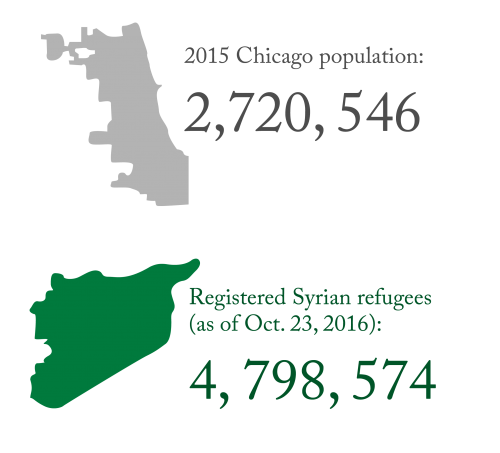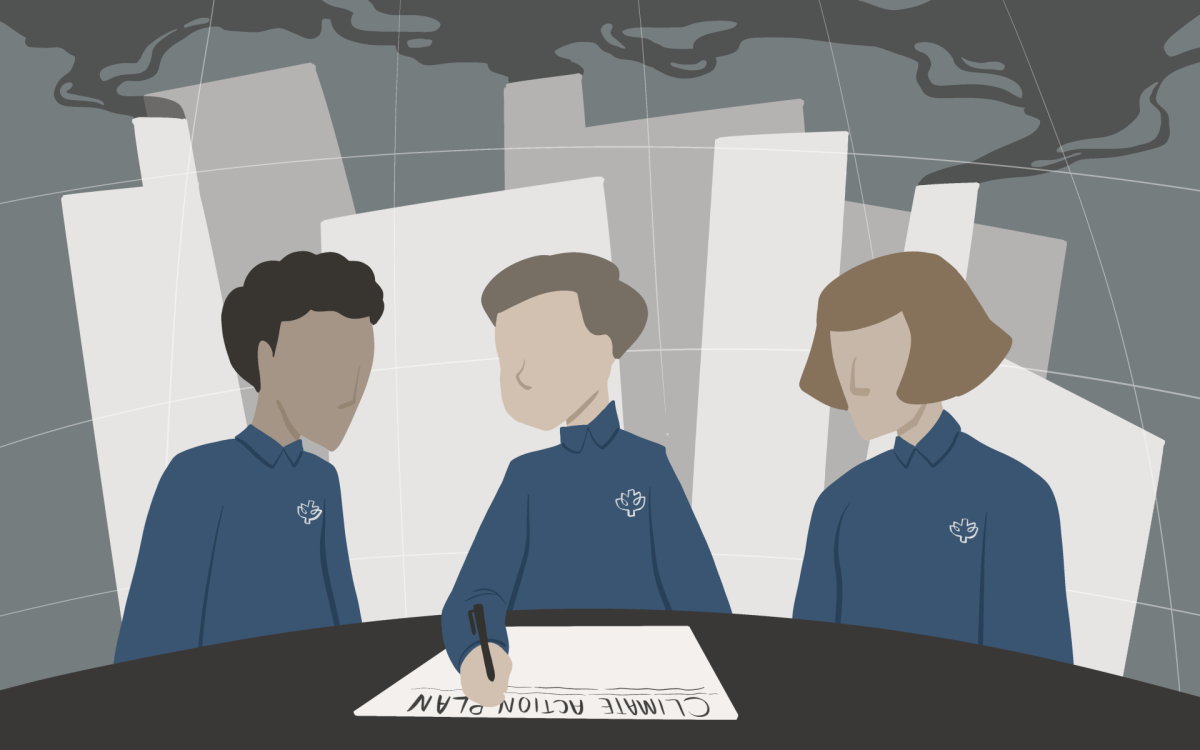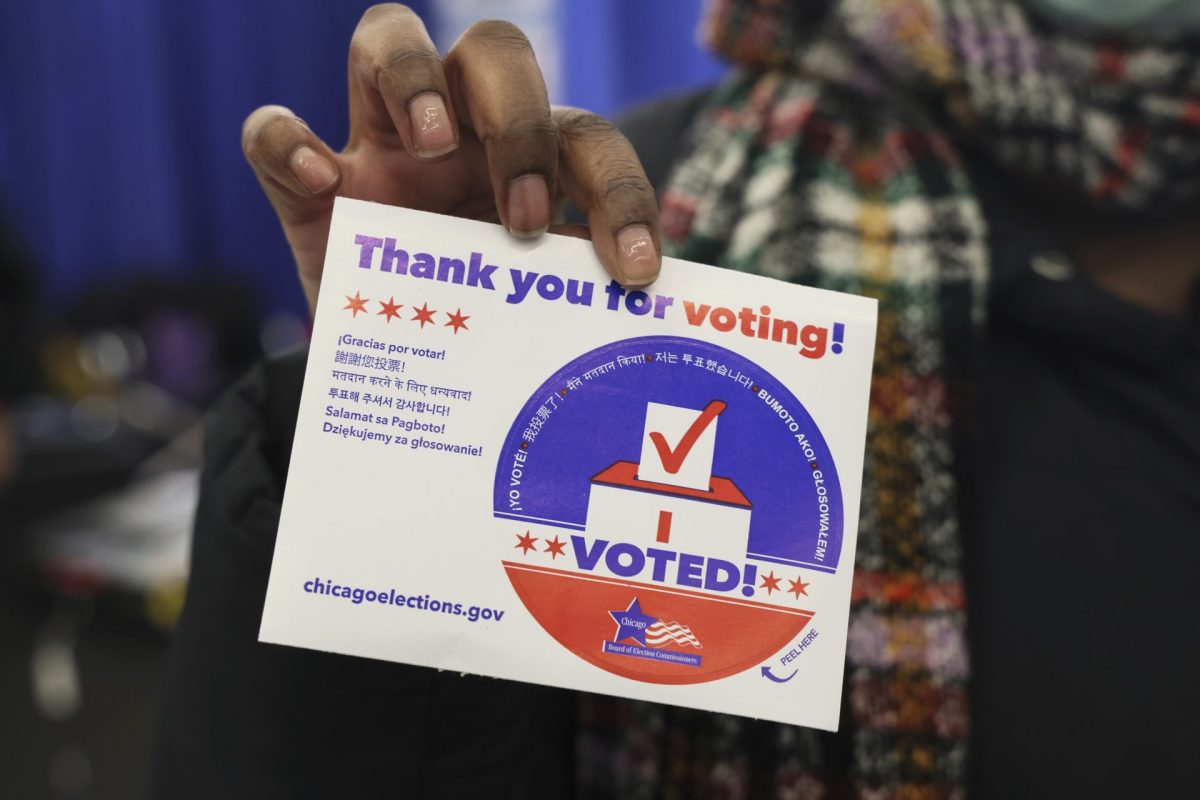The Syrian Civil War has displaced more than 4.7 million of the country’s citizens, forcing them to seek asylum in neighboring countries or European states such as Germany and the United Kingdom.
SAIL, the Society for Asylum and Immigration Law, hosted a panel on Oct. 27 to talk about the importance of lawyers’ intervention in the current refugee crisis. The panelists, including Lisa Koop, Craig Mousin and Duane F. Sigelko, talked extensively about their time in Greece working as pro-bono lawyers in an increasingly tumultuous environment.

Koop, the associate director of legal services for the National Immigrant Justice Center (NIJC) is currently an adjunct professor at Notre Dame Law School. She participated in this program and represented clients fleeing the Syrian government. Koop also is currently working on Central American immigration cases.
The NIJC works to advocate for immigrants and refugees through policy reform and public education. They work with more than 10,000 people each year consisting of immigrants, refugees and asylum seekers.
“Many refugees have been stranded in Greece because the European Union has faced refugee fatigue,” Koop said. “There has to be a mechanism through which (immigrants) can apply for protection.”
“Lesbos is such an appealing escape route from Turkey,” she said, explaining the significance of Greece’s location for struggling refugees. “You can even see Lesbos from the coast of Turkey. (Refugees) come across in zodiacs, these inflatable boats. The Turkish coast guard often tries to puncture their boats.”
Mousin, a professor in the DePaul College of Law since 1990, spoke passionately about the refugee crisis and the desperate need for legal action.
“We shouldn’t let them sit in no-person’s land,” Mousin said.
One major issue with the immigration program within countries apart of the European Union is the definition of a “safe country.” When a refugee passes through a “safe country” on their way to seek safety in a country besides their own, they are determined to be inadmissible.
On March 20, it was determined that Turkey was determined to be a safe country.
According to the European Commission Press Release Database, the EU-Turkey Refugee Deal states “All new irregular migrants crossing from Turkey to the Greek Islands as of 20 March 2016 will be returned to Turkey.”
“Countries no longer offer asylum if the refugees have previously gone through a safe country,” Mousin said. “Safe country is a legal and factual question. The domestic asylum laws now only protect Europeans facing prosecution in Turkey.”
Sigelko also sees the importance of law intervention within European countries involved with granting asylum to refugees. As a partner at Reed Smith LLP, he also works as a pro-bono lawyer to assist immigrants and refugees seeking help.
“There are currently 50,000 refugees stranded in Greece,” Sigelko said.
He also explained that Greece is “not in a good economic system” to be able to handle the influx of refugees.
“What can we do to make this process closer to the international legal laws?” he asked.
The three lawyers all agreed about the difficulty of performing legal actions within Greece. The U.S., however, is not doing its part to help the refugees either.
“Many of these issues are so similar to what’s happening in the U.S.,” Sigelko said. “We are only taking in a miniscule amount of refugees. The only real resolution (to the crisis) is if all countries step up. Most country’s populations are willing to do more than the government is.”
“The state of Texas is no longer accepting funds to resettle refugees,” Koop said. “Only 13,000 Syrian refugees were accepted into the U.S. last year. However, Chicago has been a leader in Syrian refugee resettlement.”
It is clear the world’s most powerful nations could do more, as the refugee camps set up in Greece and other countries have been proven unsafe.
“The camps are like powder kegs. You have people from all areas of the Middle East. There were riots, rock-throwing, fires,” Koop said. “This has to be intended to deter refugees from coming to Europe.”
Mousin also noted the large amount of children stranded inside the refugee camps. He personally witnessed more than 100 unaccompanied minors during his time in Greece.
“The youngest I interviewed was 15,” Mousin said. “One walked through the mountains for three months between Iran and Iraq.”
Mousin also provided his phone to the children, some talking to their mothers and fathers for the first time in months.
Oftentimes many people are under the impression that “as long as the problem stays over there, I don’t have to worry about it,” Sigelko said. “But there’s always so much more to do.”
Students were urged to help by donating money to organizations helping the Syrian refugees, such as the NIJC, UNICEF.







